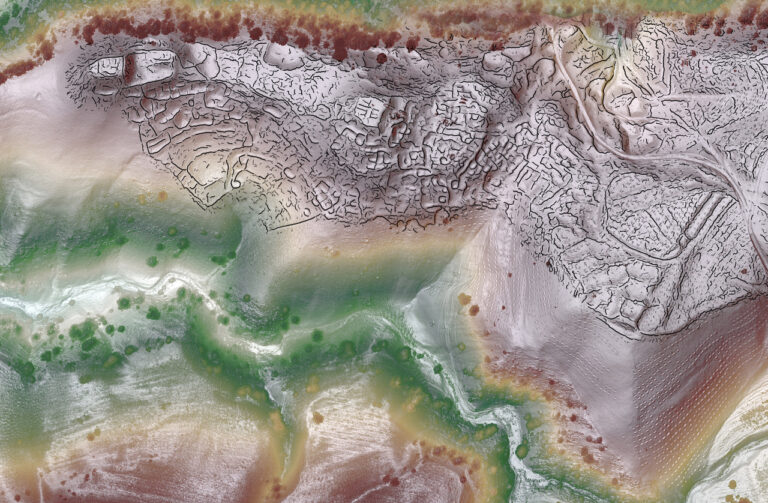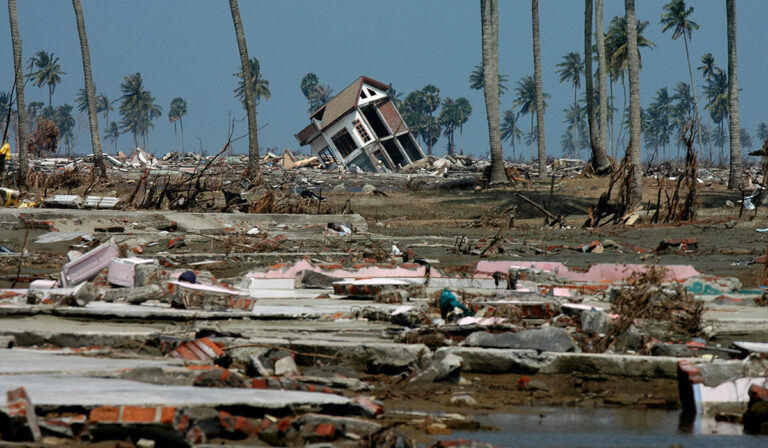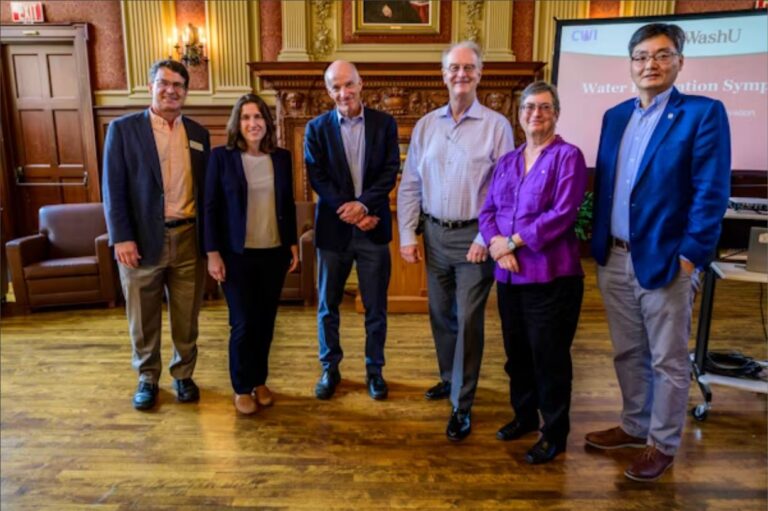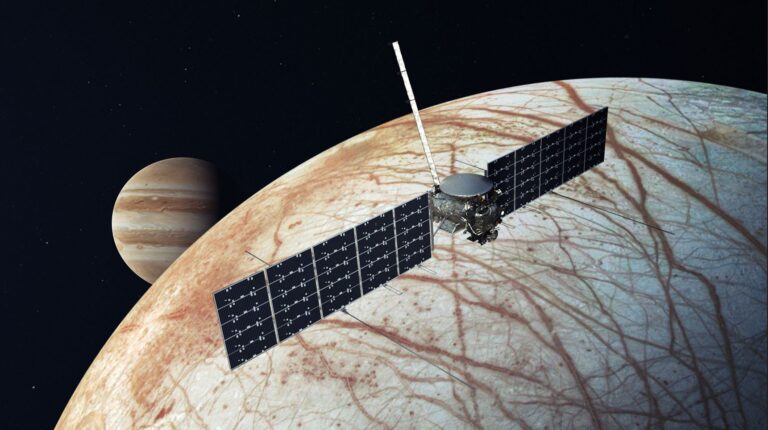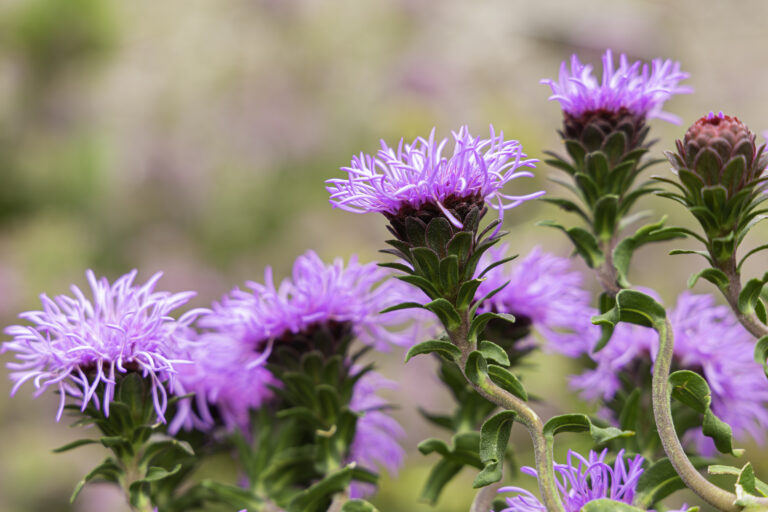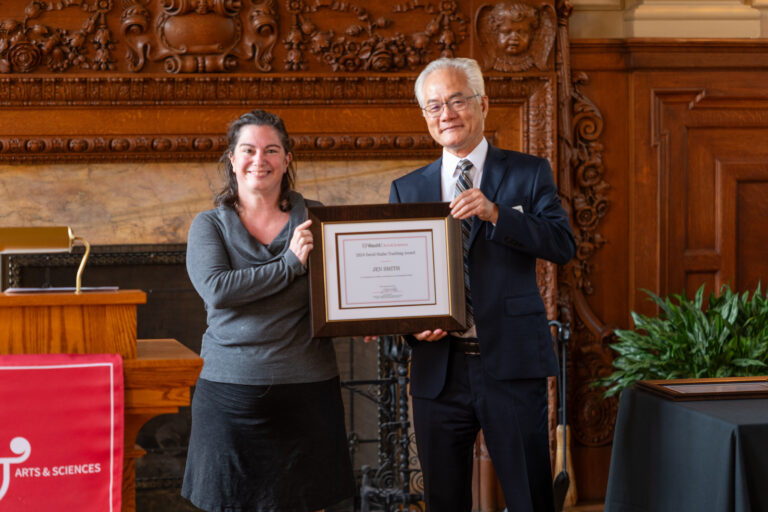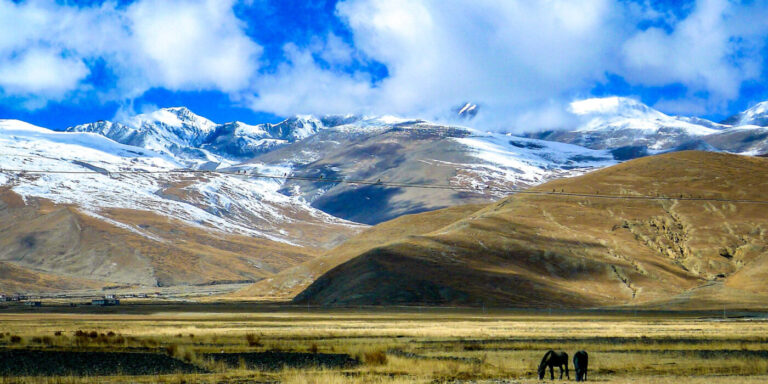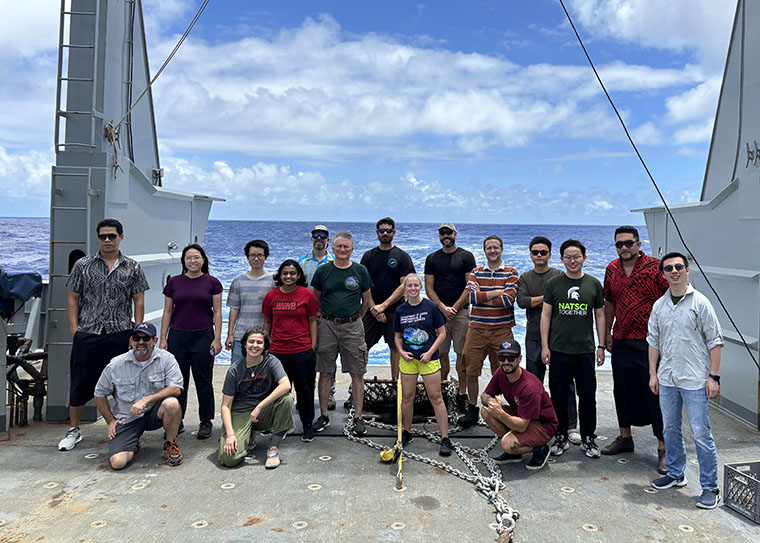How to grow food without light
Feng Jiao and collaborators plan to grow food through carbon dioxide electrolysis.
High-res lidar exposes large, high-elevation cities along Asia’s Silk Roads
The first-ever use of cutting-edge drone-based lidar in Central Asia allowed archaeologists to capture stunning details of two newly documented trade cities high in the mountains of Uzbekistan.
Frachetti receives $2.4 million to study resilience in Asia-Pacific region
WashU has received a three-year $2.4 million grant from the U.S. Department of Defense to study societal resilience — how a society recovers from major shocks like the tsunami in Indonesia — in the Asia-Pacific region.
Water Innovation Symposium highlights advances in water research
Annual event fosters connections between faculty, students and industry professionals.
NASA’s Europa Clipper prepares for launch
WashU’s McKinnon has been involved with mission to Jupiter’s moon for more than 40 years.
Climate change is super-charging St. Louis wildflowers
A study supported by the Living Earth Collaborative found that local flowers are blooming up to several weeks longer than in past decades.
Recognizing outstanding faculty and staff
Barb Winston, administrative coordinator in the Environmental Studies program, and Jennifer Smith, professor of Earth, environmental, and planetary sciences, win faculty and staff awards.
WashU scientists uncover hidden source of snow melt: dark brown carbon
Chakrabarty lab research estimates effect of light-absorbing organic carbon on snow melt.
Field Notes: South Pacific
WashU earth scientists are studying undersea earthquakes and analyzing lava rocks from a volcanic hotspot near the islands of Samoa. Read about the work from their 28-day research cruise in 2023.
Turning bacteria into bioplastic factories
Two new studies by biologists at Washington University in St. Louis highlight one potential source of game-changing materials: purple bacteria that, with a little encouragement, can act like microscopic factories for bioplastics.

